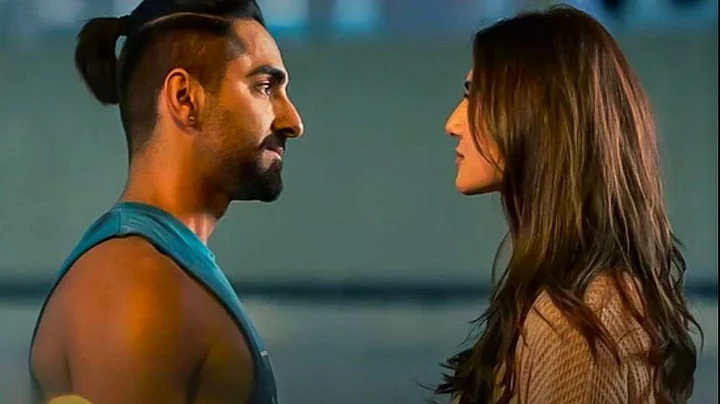Ever since the trailer of the Abhishek Kapoor-directed Chandigarh Kare Aashiqui dropped, there’s been chatter about the premise of the film. I guessed what the movie would be while watching the trailer itself, but I tried to give it a chance by watching the movie with an open mind. The movie did not disappoint my expectations – it was just as I expected – transphobic content hiding under wokeism.
The movie starts with a glaring pink and blue theme, because how else do you establish that the movie is about a section of the queer community?
There is also a disclaimer that the film does not intend to hurt the feelings and sentiments of the transgender community and that it hoped to raise awareness. But the movie revolved around the macho hero – Ayushmann Khurrana – who has used the pain of transgender community for comedy.
To give a glimpse, the movie is about Punjabi hunk Manu Munjal (Ayushmann), whose dream is to win an annual gym competition. Enter Zumba instructor Maanvi Brar (Vaani Kapoor) who joins his gym.
There is instant attraction, and the couple are drawn to each other. Several steamy scenes later – Maanvi comes out as a trans woman. A slew of dysphoric, triggering, transphobic words and gestures follows.
I must admit that it hurt me a lot when people in the movie theatre started sniggering and laughing when the transphobic slurs were hurled relentlessly. It even made me scared to use the washroom during the interval.
To put it simply, the movie lacked research – something that even a simple Google search would have told. Maanvi was shown popping pills and going through feminisation process like it was a laser treatment – and in the end Maanvi uses the term ‘trans girl’ as her identity and not transgender woman.
Several transphobic comments and words are used like- 'Andar se Bahar se' or 'Thi ya tha' or ‘'Ladke ke sath sex, tu toh ladka bhi nahi hai' – are simply crass and reflects nothing educational about it. The constant stare of eyes from head to toe – sent the audience into hysterical laughs.
But as someone who was feeling dysphoric, I felt there was nothing funny about it. I can say that this movie was not about empowering the community, it was used horribly as a twist in the rom-com. If you are saying that the movie is about empowering the community, it should be well-researched, and inclusive – and mostly importantly, you are accountable to the community.
Then there is one scene featuring whom I am assuming is a transgender person, who was shown begging on a signal, and it was said that they hold a BA in English. I would have loved for that conversation to focus on the person saying that we don't get jobs even if we are well-qualified. But instead, the focus was on Manu and his sister who said something like – “Mission abort apna munda musibat mein.”
The sister then passes highly transphobic comment 'Ab Munjal House mein Ek Kinnar Bahu ban ke aayega' – amid loud cheering in the theatre.
I also want to point out that I am a 'trans boy' – as per this movie's terminology. I am known as Trans man* /Trans Masculine/ Transgender Man, I was again invisible. If you are using whole transgender community umbrella and not using my identity term, you made me marginalized in the minority. I got no representation at all like all other series and movies in the mainstream.
The movie features Kapoor – a cis-gender woman playing a trans woman. The role has created cis-gender standards, so-called norms for the bodies and attributes.
How am I going to define dysphoria to these people who claimed that 6 years ago Maanvi had gender affirmation procedures? Her friend repeatedly focused on how great she is at cis-passing, the comment – “Ab tu Tshirt thode na pehen ke ghumegi ki I am a Trans Girl” - was really a cherry on the top.
The word normal, was so normalised in the movie, normal girl, normal sex, normal life and so boldly Maanvi said – “What I have cut from my body, you can never compare the pain of it." It was again summed up on the body parts.
When their romance was rekindled, Manu went to a doctor, supposedly a psychiatrist, and the comment was something along the lines of "Bhagwan" making a ‘mistake’ and Maanvi correcting it. At this point I lost the hope and rest of my courage to find something positive from the movie.
I can be questioned why I have dissected the dialogues. I want to stress that the makers said that the whole point of the film was to represent the community. We are tired of the representation.
(Satvik (he/they) is a National Program Manager at Tweet Foundation. He is the co-founder of Transmen Collective)
(At The Quint, we question everything. Play an active role in shaping our journalism by becoming a member today.)
